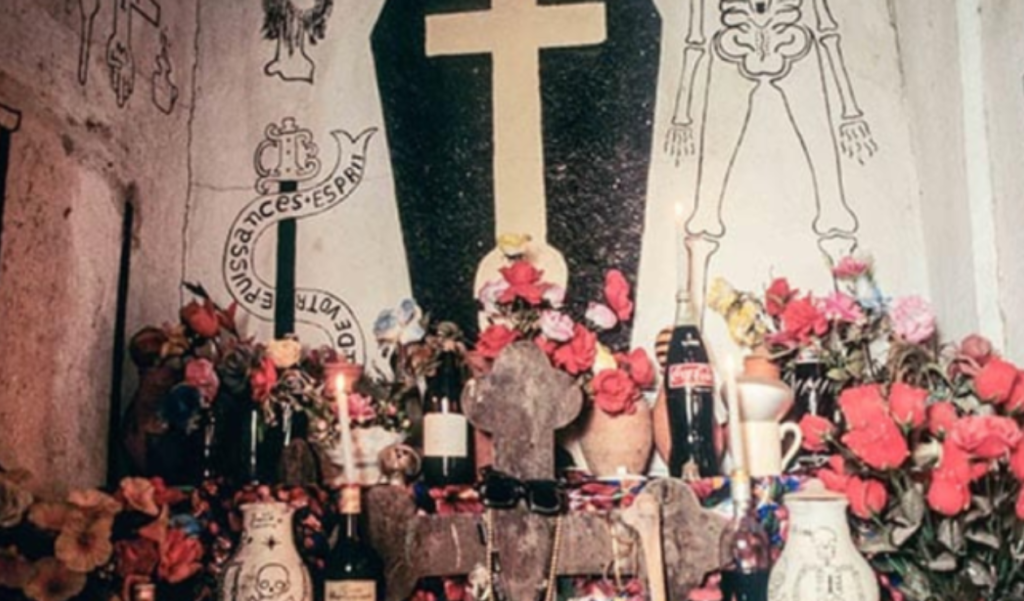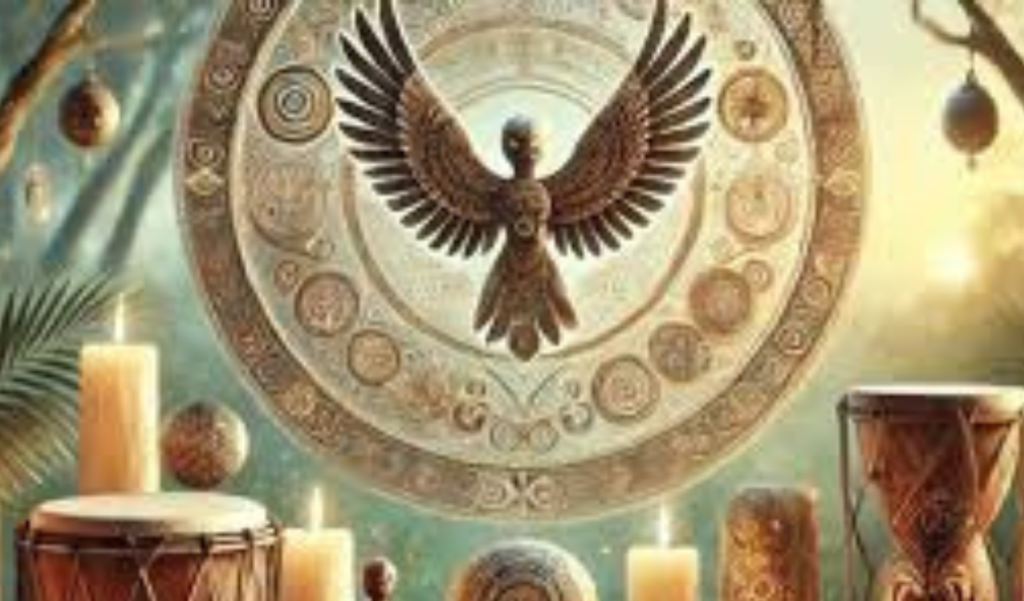Thezburg Voodoo is more than just a religion or a set of rituals; it represents a rich and intricate spiritual tradition. This unique belief system intertwines African heritage, indigenous beliefs, and Christian elements, creating a complex spiritual tapestry that is both fascinating and deeply rooted in cultural history.
Thezburg Voodoo may not be as widely known as Haitian or New Orleans Voodoo, but it holds significant importance within the communities that practice it. It’s a tradition that has survived centuries of colonization, slavery, and cultural suppression, emerging as a resilient and vibrant spiritual practice.
This article will explore the depths of Thezburg Voodoo, from its origins to its modern-day practices. By the end, you’ll have a comprehensive understanding of this spiritual tradition, its significance, and why it continues to thrive in certain parts of the world.
Origins of Thezburg Voodoo
African Roots
The origins of Thezburg Voodoo can be traced back to West Africa, particularly in the regions that are now known as Benin, Togo, and Nigeria. The Yoruba, Fon, and Ewe people of these areas practiced a religion that honored a pantheon of deities known as “Orishas.” These deities represented natural forces and ancestors, and they were central to the spiritual lives of the people.
When the transatlantic slave trade began, many Africans were forcibly taken to the Americas and the Caribbean. Along with their physical labor, they brought their spiritual beliefs with them. Over time, these beliefs merged with other indigenous and Christian elements, giving rise to what we now know as Thezburg Voodoo.
Indigenous Influences
The indigenous beliefs of the people living in the regions where Thezburg Voodoo developed also played a crucial role in shaping the tradition. Native American spiritual practices, particularly those related to nature worship and ancestor veneration, were incorporated into Voodoo practices, creating a syncretic belief system that was both African and indigenous.
Christian Elements
As European colonizers spread Christianity throughout the world, many African slaves and indigenous people were forced to convert. However, instead of abandoning their traditional beliefs, they often blended them with Christian elements. This led to the inclusion of Christian saints in Voodoo practices, where they were often identified with specific Orishas or spirits. For example, the Virgin Mary might be associated with a particular Voodoo goddess, creating a unique blend of Christianity and traditional African beliefs.
Core Beliefs of Thezburg Voodoo
The Spirit World
At the heart of Thezburg Voodoo is a belief in the spirit world, which is seen as intertwined with the physical world. Spirits, ancestors, and deities play an active role in the lives of the living, influencing everything from health and prosperity to misfortune and illness.
Orishas and Spirits
The Orishas, or deities, are central to Thezburg Voodoo. Each Orisha represents a specific natural force or aspect of life, such as love, war, fertility, or the ocean. They are honored through rituals, offerings, and prayers, and they are believed to have the power to influence the lives of their followers.
In addition to the Orishas, there are also spirits of the dead, who are often revered as ancestors. These spirits are believed to protect and guide their living descendants, and they are honored with offerings and rituals.
The Role of Priests and Priestesses
In Thezburg Voodoo, priests and priestesses, known as houngans and mambos, serve as intermediaries between the living and the spirit world. They perform rituals, offer sacrifices, and communicate with the spirits on behalf of their followers. They are highly respected figures within the community, often serving as healers, counselors, and spiritual guides.
Rituals and Ceremonies
Rituals are a vital part of Thezburg Voodoo, serving as a way to connect with the spirits and seek their guidance or assistance. These rituals often involve music, dance, offerings, and the use of sacred objects. One of the most well-known rituals is the “Voodoo ceremony,” where participants enter a trance-like state, believed to be possessed by the spirits.
The Symbolism in Thezburg Voodoo

Symbols and Sacred Objects
Symbols play a crucial role in Thezburg Voodoo, often serving as representations of the spirits or Orishas. Veves, intricate designs drawn on the ground, are one such symbol. They are believed to attract the spirits and serve as a focal point during rituals.
Sacred objects, such as altars, candles, and offerings, are also used in Voodoo practices. These objects help to create a connection between the physical and spiritual worlds, allowing practitioners to communicate with the spirits.
The Significance of Colors
Colors hold special significance in Thezburg Voodoo, with each color representing a different Orisha or spirit. For example, the color white is often associated with purity and protection, while red may represent power and strength. During rituals, specific colors are used to honor the spirits and enhance the connection between the practitioner and the spirit world.
The Role of Thezburg Voodoo in Society
Healing and Medicine
One of the most important roles of Thezburg Voodoo in society is as a form of healing and medicine. Traditional Voodoo healers, known as bokors or houngans, use herbs, rituals, and spiritual guidance to treat physical and mental ailments. This holistic approach to healing is deeply rooted in the belief that health is not just physical but also spiritual.
Community and Social Cohesion
Thezburg Voodoo also plays a vital role in maintaining community and social cohesion. Rituals and ceremonies are often communal events, bringing people together to celebrate, mourn, or seek guidance from the spirits. These gatherings help to strengthen social bonds and provide a sense of identity and belonging.
The Power of Magic and Protection
Magic, or “work,” as it’s often called in Voodoo, is an essential aspect of Thezburg Voodoo. Practitioners believe that they can harness spiritual energy to influence the world around them, whether for protection, love, success, or revenge. This magic is not seen as inherently good or evil; it depends on the intentions of the practitioner.
The Misconceptions and Stereotypes of Thezburg Voodoo
Hollywood’s Portrayal
Unfortunately, Thezburg Voodoo, like other forms of Voodoo, has been subject to numerous misconceptions and stereotypes, largely due to its portrayal in Hollywood movies and popular culture. Films often depict Voodoo as dark, mysterious, and dangerous, associating it with curses, zombies, and black magic. These portrayals are not only inaccurate but also harmful, perpetuating negative stereotypes about a legitimate and complex spiritual tradition.
Religious Misunderstandings
There are also misunderstandings within religious communities about Thezburg Voodoo. Some view it as incompatible with Christianity or even as a form of devil worship. However, as we’ve seen, Thezburg Voodoo often incorporates Christian elements, and many practitioners see no conflict between their Voodoo beliefs and their Christian faith.
The Modern-Day Practice of Thezburg Voodoo

Where is Thezburg Voodoo Practiced?
Thezburg Voodoo is primarily practiced in certain regions of the Caribbean, Central America, and the southern United States. However, thanks to migration and the spread of culture, it can now be found in various parts of the world.
Voodoo in the Digital Age
With the advent of the internet and social media, Thezburg Voodoo has found a new platform for expression. Online communities have formed where practitioners can share their knowledge, experiences, and rituals. This has helped to preserve and spread the tradition, allowing it to reach a wider audience.
The Continuation of Tradition
Despite the challenges and misconceptions, Thezburg Voodoo continues to thrive. For many, it is not just a religion but a way of life, offering guidance, protection, and a connection to their heritage. The tradition has shown remarkable resilience, adapting to new environments while maintaining its core beliefs and practices.
Conclusion: The Importance of Understanding Thezburg Voodoo
Thezburg Voodoo is a deeply spiritual tradition that deserves respect and understanding. It is a testament to the resilience of culture and belief, surviving centuries of oppression and misrepresentation. By exploring the origins, beliefs, rituals, and modern-day practices of Thezburg Voodoo, we can gain a deeper appreciation for this rich and complex tradition.
As you’ve learned, Thezburg Voodoo is not about curses or dark magic but about connecting with the spiritual world, healing, and maintaining community bonds. It is a living tradition that continues to evolve, offering guidance and support to those who practice it.
FAQs About Thezburg Voodoo
What is Thezburg Voodoo?
Thezburg Voodoo is a spiritual tradition that combines African heritage, indigenous beliefs, and Christian elements. It involves rituals, offerings, and the veneration of spirits and ancestors.
Is Thezburg Voodoo the same as Haitian Voodoo?
While Thezburg Voodoo shares some similarities with Haitian Voodoo, they are distinct traditions. Thezburg Voodoo has its own unique practices, rituals, and beliefs.
Are there any dangers in practicing Thezburg Voodoo?
Like any spiritual practice, Thezburg Voodoo should be approached with respect and understanding. Misuse or misunderstanding of rituals can lead to negative consequences, but it is not inherently dangerous.
How can I learn more about Thezburg Voodoo?
To learn more, consider connecting with practitioners or communities that practice Thezburg Voodoo. Reading books, attending rituals, and participating in online forums can also provide valuable insights.
Can non-Africans practice Thezburg Voodoo?
Thezburg Voodoo is open to anyone who approaches it with respect and a genuine desire to learn. However, it is important to understand the cultural significance of the tradition and avoid appropriating it.
What role do ancestors play in Thezburg Voodoo?
Ancestors are central to Thezburg Voodoo. They are believed to protect and guide their descendants, and they are honored through rituals, offerings, and prayers.
How does Thezburg Voodoo view the concept of good and evil?
Thezburg Voodoo does not have a strict concept of good and evil. Instead, it focuses on the intentions of the practitioner. Magic, for example, can be used for both positive and negative purposes, depending on the user’s goals.
